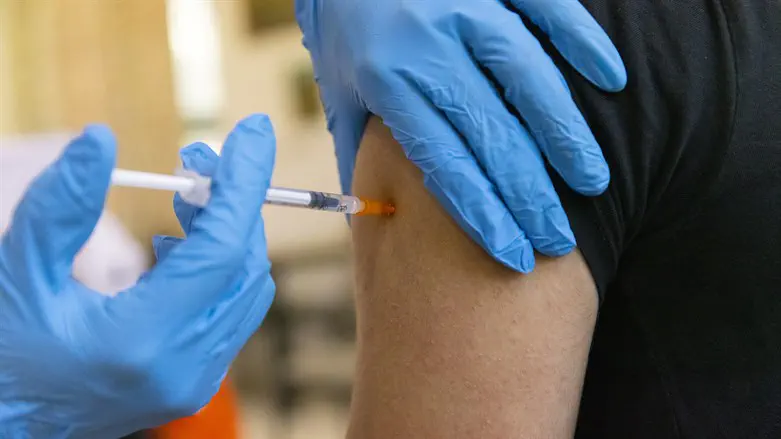
Several months into a new trial of the fourth dose of COVID vaccine at Sheba Medical Center, Professor Gili Regev-Yochai, director of the Department of Infectious Diseases, has released interim results indicating that the "second booster shot" is of limited efficacy.
Sheba Medical Center commenced the first trial of the fourth COVID shot in the world at the end of last year, studying the results of serological testing and immunity of the largest such cohort in the world – around 6,000 people – including 270 healthcare workers, separating some into a control group who received only three shots and whose serological levels had already dropped to below 700.
A month after the trial group received the fourth dose of vaccine, 19 percent of them had contracted COVID (Omicron variant), as compared to 25 percent of the control group.
Among those who contracted COVID, 15 percent of the trial group had symptoms as opposed to around 36 percent of those who only received three doses of vaccine.
Unlike many other trials, the Sheba trial also studied the Moderna vaccine and found very similar results to those from the Pfizer vaccine.
Commenting on the results, Prof. Regev-Yochai said, "With regard to the efficacy of the fourth vaccine, either Pfizer or Moderna, we found that infection rates in the trial group were only marginally lower than those in the control group. A third dose is important for those who have never contracted COVID, and a fourth dose appears to be important for those in a high-risk category for COVID complications."
The Health Ministry made the decision to begin offering a fourth vaccine dose at the end of December, 2021, before the first results emerged from the Sheba study, making Israel the first country in the world to offer a second booster shot. A week later, Prime Minister Naftali Bennett visited Sheba Medical Center and was informed of the first interim results of the trial.
"The initial study regarding the fourth dose shows that within about a week of receiving it there is an almost 5-fold increase in the number of antibodies in the blood," Bennett said. "Apparently, this will demonstrate a much higher level of protection."
